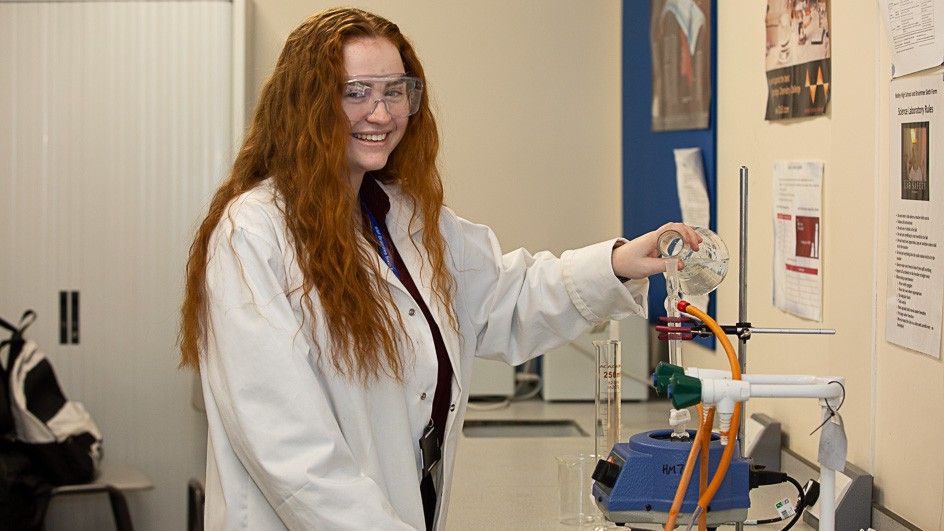Article Date: 27 January 2020
Article Date: 27 January 2020
Ellie Lane writes about the experience of completing her Gold CREST Award.
What is CREST?
CREST is a scheme that aims to inspire young people to think and behave like scientists and engineers. It is a nationally recognised scheme for student-led projects in the STEM subjects (Science, Technology, Engineering and Maths). CREST gives young people the chance to choose their own subject and design their own methodology for completing their own investigation. A CREST award can be for a range of ages, involving groups or individuals, and can be a simple 1-hour long project or extend to long-scale projects of over 70 hours of work. CREST can be done by anyone. This programme has been running since 1986 and sees tens of thousands of young people taking part each year.
About the Gold CREST awards
Gold levels are designed to challenge students, typically of ages 16+; they are long-term, in-depth projects that are led by the students themselves. Students choose the topic and type of project they want to run.
To be awarded a Gold CREST award,students must complete a project that makes an original contribution to a STEM field; the aim is for students to hone their investigative skills and employ scientific methods to conduct their own piece of research. Other CREST awards at different levels are available for younger age groups.
Ellie writes…Why I put my project forward for the CREST Gold Award
I applied for a Nuffield research placement during my first year of A Levels with the idea that the experience would support my application to university. I was awarded a place at a company called TREATT in Bury St. Edmunds. TREATT specialises in the production and development of essential oils to be used as flavours in beverages. I spent 4 weeks of the summer holidays there doing my own research for a project they assigned to me; my project was the investigation of the stability of different lemon flavourings.
In this amazing experience I was surrounded by professionals who helped guide me through my project and gave me an insight into what a laboratory environment is like. I was shown how to use the analytical equipment where I was entrusted to run samples on machines including the GC-MS and HLPC on my own, experiencing experimental analysis that is not available to me in the normal sixth form A Level study. In addition to completing my project, I worked in the quality control labs helping to check compounds’ properties were correct so they could be sold or added to mixtures. I also worked in distillation and applications where I distilled off fractions and mixed them to make certain flavours, working with well-known companies to supply the compounds needed for their drink flavours.
Unfortunately, my project was unsuccessful. This experiment, if successful, would have furthered the industry of flavour science and produced a wider market in drinks and food flavourings that require lemon flavour as companies would not be burdened with lemon oil being unstable.
My choice of what acid to use in the solution probably affected the outcome of my experiment which is why I decided to repeat it with a different combination. A disadvantage to this experiment was the shortage of time that my placement involved; with added time I could have investigated other combinations and ways of testing.
I absolutely loved doing my project not simply because of learning new things about the topic itself but understanding what this working environment is like and being surrounded by amazing people to help me throughout. My project has given me a deeper insight into the chemistry that I am learning in school, by getting a hands-on experience in an actual real-life lab. Doing my project didn’t just help me academically, I have also learnt valuable skills about the workplace, how it works and the people around me, as well as getting some advice about my future from those who have been through university already. Not only has the experience been great but it has also broadened my thinking about what I’d like to pursue at university.
I was encouraged to put my project forward by the lab team once I had completed my research and I did. My project was then awarded a CREST Gold award, which I am extremely proud of. Putting my project forward for this award helped me immensely as it taught me how to write up and set out a scientific report to a high standard. This skill has already helped me in writing up my PAG report at A Level and will no doubt help me when I’m at university.
I would encourage anyone interested in Science to look into both the Nuffield placements and CREST awards.
Ellie Lane

